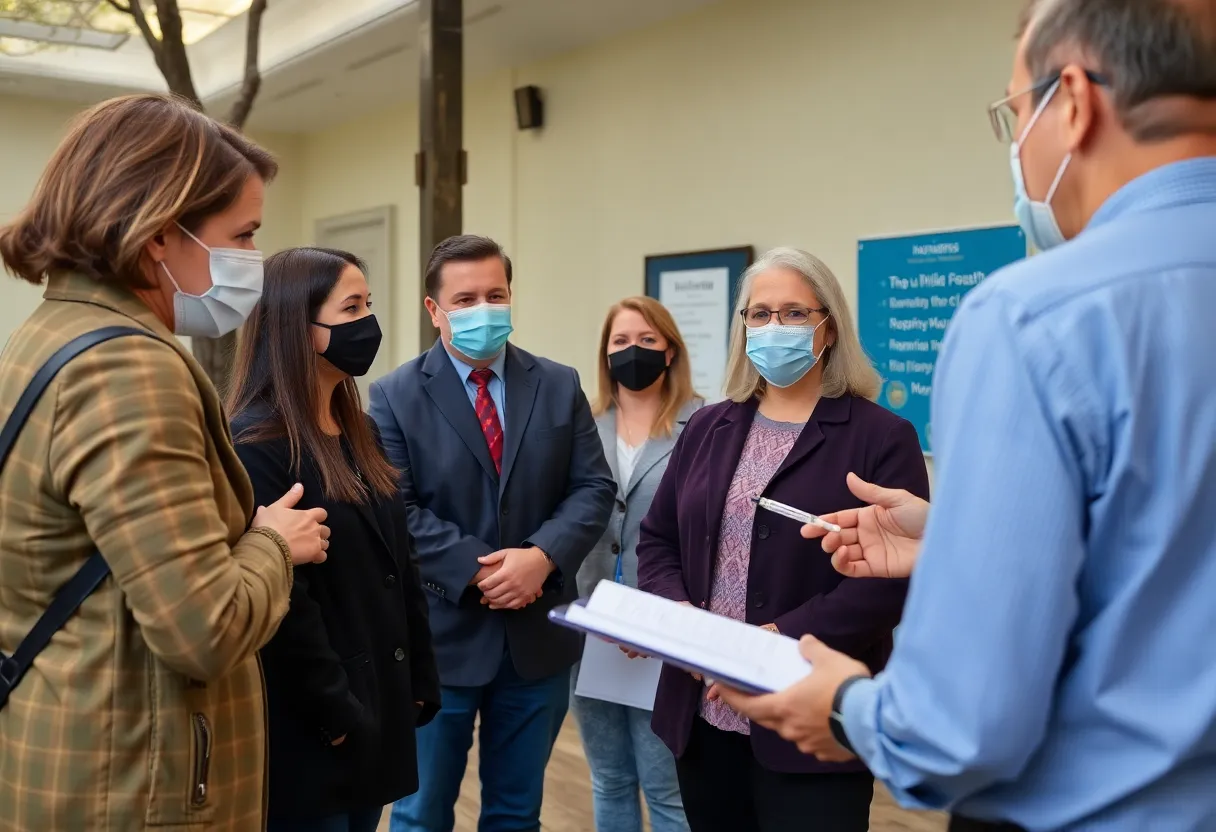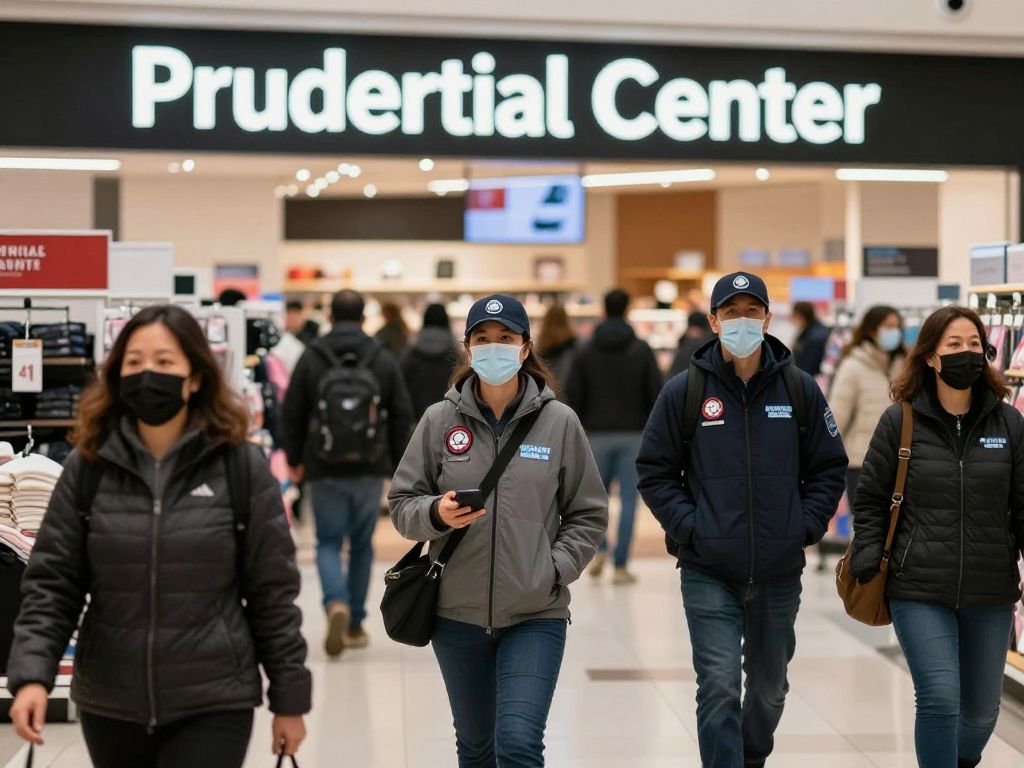News Summary
The Massachusetts Department of Public Health is responding to significant changes within the federal Advisory Committee on Immunization Practices (ACIP), which has seen new appointees appointed by Health Secretary Robert F. Kennedy Jr. Amid criticism and concerns about the new members’ credibility, state officials emphasize their commitment to public health and vaccine access. The upheaval raises questions about the future of vaccine policy and public trust as health officials navigate these complexities while continuing their vaccination efforts.
Boston, Massachusetts – The Massachusetts Department of Public Health is striving for clarity in vaccine policy amid significant changes within the federal Advisory Committee on Immunization Practices (ACIP). Recent developments have raised concerns regarding the composition and credibility of the committee, which is integral to shaping vaccine recommendations across the nation.
On June 9, 2025, U.S. Health and Human Services Secretary Robert F. Kennedy Jr. dismissed all 17 existing ACIP members, replacing them with eight new appointees. This move has sparked scrutiny and uncertainty, with Massachusetts Department of Public Health Commissioner Robbie Goldstein expressing dismay over the situation. He described the upheaval as “very alarming” and indicated that the state’s Vaccine Purchasing Advisory Council (MVPAC) will continue to rely on ACIP guidance for its operations.
Senator Elizabeth Warren has criticized the newly appointed ACIP members, questioning their qualifications and labeling them as vaccine skeptics. This criticism underscores the concerns from public health experts regarding the potential impact of this committee shift on vaccine science and public health. Kennedy, however, defended his changes, claiming that the new appointees are qualified scientists and public health experts aimed at restoring public confidence in vaccine science.
New Committee Members and Agenda
Among the newly appointed members is Dr. H. Cody Meissner, recognized for his commitment to scientific evidence and vaccine policy. The ACIP’s refreshed agenda is set to include a reevaluation of thimerosal, a vaccine ingredient that has been erroneously linked to autism—a claim that has been disputed by experts. Critics of the new committee express concern that the reevaluation may undermine established scientific findings and compromise the integrity of vaccine practices.
Goldstein emphasized the critical role of combating misinformation about vaccines as a means to foster public trust in health programs, a sentiment echoed by numerous public health advocates. Another controversial statement from Kennedy indicated that the CDC is no longer recommending COVID vaccines for healthy pregnant women and children, a claim that has been met with pushback from various health experts.
State Actions and Considerations
In response to the empowerment of the new ACIP, Massachusetts officials are actively exploring ways to disentangle state policies from federal recommendations and regulations surrounding vaccines. Despite the changes at the federal level, Governor Maura Healey has announced that Massachusetts will continue to provide vaccines regardless of alterations in federal policy. This commitment signals the state’s assurance to maintain accessible vaccination options for its residents.
Amidst this shake-up, concerns linger regarding the credibility of the new ACIP members and how their recommendations might affect vaccination protocols and practices throughout the U.S. healthcare system. Goldstein’s remarks focus on the importance of ongoing access to vaccines in Massachusetts, despite the uncertainties surrounding federal advice.
Global Implications
Adding another layer to the ongoing conversation, Kennedy expressed intentions to cut U.S. financial support for Gavi, a global organization dedicated to vaccine procurement in developing countries. He accused Gavi’s leadership of neglecting vaccine safety issues, thereby raising further debates about the implications of such a decision on global health initiatives.
Overall, the shake-up within the CDC’s ACIP and the ensuing discussions in Massachusetts reflect a complex landscape for vaccine policy going forward. As state officials navigate the uncertainties stemming from federal changes, the focus remains on ensuring public trust and health equity in vaccination efforts.
Deeper Dive: News & Info About This Topic
HERE Resources
Additional Resources
- GazetteNet: Experts mulling federal vaccine policy shifts
- Wikipedia: Vaccine policy
- Boston 25 News: Kennedy’s Vaccine Policy
- Google Search: vaccine controversy
- Boston.com: RFK Jr. ousts entire CDC Vaccine Advisory Committee
- Google Scholar: vaccine policy
- Boston Herald: CDC vaccine committee meeting
- Encyclopedia Britannica: Vaccination
- Boston Globe: RFK Jr.’s vaccine panel review of immunization schedule
- Google News: vaccine policy changes

Author: STAFF HERE BOSTON WRITER
The BOSTON STAFF WRITER represents the experienced team at HEREBoston.com, your go-to source for actionable local news and information in Boston, Suffolk County, and beyond. Specializing in "news you can use," we cover essential topics like product reviews for personal and business needs, local business directories, politics, real estate trends, neighborhood insights, and state news affecting the area—with deep expertise drawn from years of dedicated reporting and strong community input, including local press releases and business updates. We deliver top reporting on high-value events such as Boston Marathon, Head of the Charles Regatta, and Boston Harborfest. Our coverage extends to key organizations like the Greater Boston Chamber of Commerce and Associated Industries of Massachusetts, plus leading businesses in finance, biotech, and insurance that power the local economy such as Fidelity Investments, Biogen, and Liberty Mutual Insurance. As part of the broader HERE network, we provide comprehensive, credible insights into Massachusetts's dynamic landscape.





